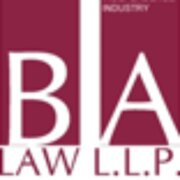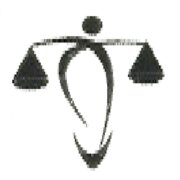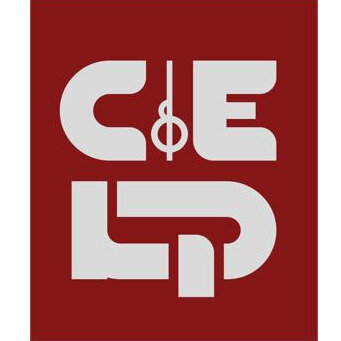Best Whistleblower & Qui Tam Lawyers in Nigeria
Share your needs with us, get contacted by law firms.
Free. Takes 2 min.
Or refine your search by selecting a city:
List of the best lawyers in Nigeria
About Whistleblower & Qui Tam Law in Nigeria
Whistleblower laws in Nigeria are designed to protect individuals who report illegal activities, corruption, or fraud within organizations. While Qui Tam laws allow private citizens to file lawsuits on behalf of the government to recover stolen funds due to fraud, this concept is not fully established in Nigerian law as it is in some other jurisdictions. However, Nigerian law does offer some mechanisms for whistleblowers, primarily under the Whistleblower Protection Act and related policies. These initiatives focus on encouraging transparency, accountability, and integrity in both public and private sectors.
Why You May Need a Lawyer
Engaging a lawyer can be essential for several reasons, including:
- Assistance in navigating complex whistleblower policies and understanding the intricacies of the legal protections available.
- Protecting your rights and ensuring that you are not subject to retaliation from your employer or associated entities.
- Formulating effective strategies to report misconduct securely and potentially seeking rewards for exposing fraudulent activities.
- Legal representation in case of disputes or if your situation escalates to court proceedings.
Local Laws Overview
Nigeria's whistleblower policy, enacted by the Federal Ministry of Finance, primarily offers protection against discrimination and reprisal for individuals disclosing corrupt practices and fraud. This policy encourages the reporting of financial crimes, promoting better governance and transparency. Although there are no specific Qui Tam provisions in Nigerian law, the government incentivizes whistleblowing with rewards of up to 5% of recovered monies from reported fraud cases.
Whistleblower protection also intersects with various other Nigerian laws, including the Financial Regulations, Public Procurement Act, and related anti-corruption statutes, offering a framework for the ethical reporting and eradication of illegal activities.
Frequently Asked Questions
What is the primary purpose of Nigeria's whistleblower policy?
The whistleblower policy aims to encourage individuals to report financial misconduct and related crimes by offering protection and potential rewards for actionable information.
Do Qui Tam actions exist in Nigeria?
While Nigeria does not have a formal Qui Tam provision like the United States, it encourages whistleblowing through policies that reward individuals for reporting fraud leading to state recovery.
What protections are available for whistleblowers in Nigeria?
Whistleblowers are protected from harassment, victimization, and potential job losses due to their disclosures. These protections are part of broader governmental policies to encourage ethical reporting.
What type of misconduct can be reported under the whistleblower policy?
Misdemeanors such as financial corruption, fraud, embezzlement, budgetary misappropriation, and money laundering can be reported under this policy.
Is there a reward system for whistleblowers in Nigeria?
Yes, whistleblowers can receive up to 5% of the funds recovered as a result of their reporting, upon successful recovery and/or conviction.
Are whistleblower reports kept confidential?
Yes, the policy ensures that the identity of whistleblowers is kept confidential to protect them from possible retaliation.
How can I report fraud anonymously?
Fraud can be reported anonymously through dedicated online platforms, hotlines, or directly to designated government offices tasked with handling whistleblower reports.
What should I do if I face retaliation at work for whistleblowing?
Contact a legal advisor immediately to explore protections under Nigerian law and potentially escalate the retaliation claims to appropriate legal or regulatory bodies.
Can I withdraw my whistleblower report?
Yes, individuals can withdraw their report, but it's important to seek legal advice before doing so, as it may affect potential rewards or proceedings.
What role do lawyers play in whistleblower cases?
Lawyers offer guidance on legal rights, help navigate the whistleblower process, provide defense in case of backlash, and assist in securing potential rewards for whistleblowing.
Additional Resources
For more information and support, consider reaching out to the following:
- The Federal Ministry of Finance - for details on the whistleblower policy and reporting processes.
- Public Complaints Commission - for lodging non-judicial complaints.
- Nigerian Bar Association - for finding qualified legal representation or advice specific to whistleblower cases.
- Independent Corrupt Practices and Other Related Offences Commission (ICPC) - for directing reports of corruption.
- Economic and Financial Crimes Commission (EFCC) - for financial crime reporting.
Next Steps
If you require legal assistance with whistleblower and qui tam issues in Nigeria, consider the following steps:
- Conduct thorough research to understand the basics of whistleblower laws relevant to your case.
- Contact a specialized lawyer for initial consultation and advice tailored to your situation.
- Gather and organize any evidence or documentation that supports your claim.
- Utilize government resources or report fraud through appropriate channels to safeguard your rights and potentially secure rewards.
- Carefully consider your options and legal protections before proceeding with a formal report or legal action.
Lawzana helps you find the best lawyers and law firms in Nigeria through a curated and pre-screened list of qualified legal professionals. Our platform offers rankings and detailed profiles of attorneys and law firms, allowing you to compare based on practice areas, including Whistleblower & Qui Tam, experience, and client feedback.
Each profile includes a description of the firm's areas of practice, client reviews, team members and partners, year of establishment, spoken languages, office locations, contact information, social media presence, and any published articles or resources. Most firms on our platform speak English and are experienced in both local and international legal matters.
Get a quote from top-rated law firms in Nigeria — quickly, securely, and without unnecessary hassle.
Disclaimer:
The information provided on this page is for general informational purposes only and does not constitute legal advice. While we strive to ensure the accuracy and relevance of the content, legal information may change over time, and interpretations of the law can vary. You should always consult with a qualified legal professional for advice specific to your situation.
We disclaim all liability for actions taken or not taken based on the content of this page. If you believe any information is incorrect or outdated, please contact us, and we will review and update it where appropriate.
Browse whistleblower & qui tam law firms by city in Nigeria
Refine your search by selecting a city.

















